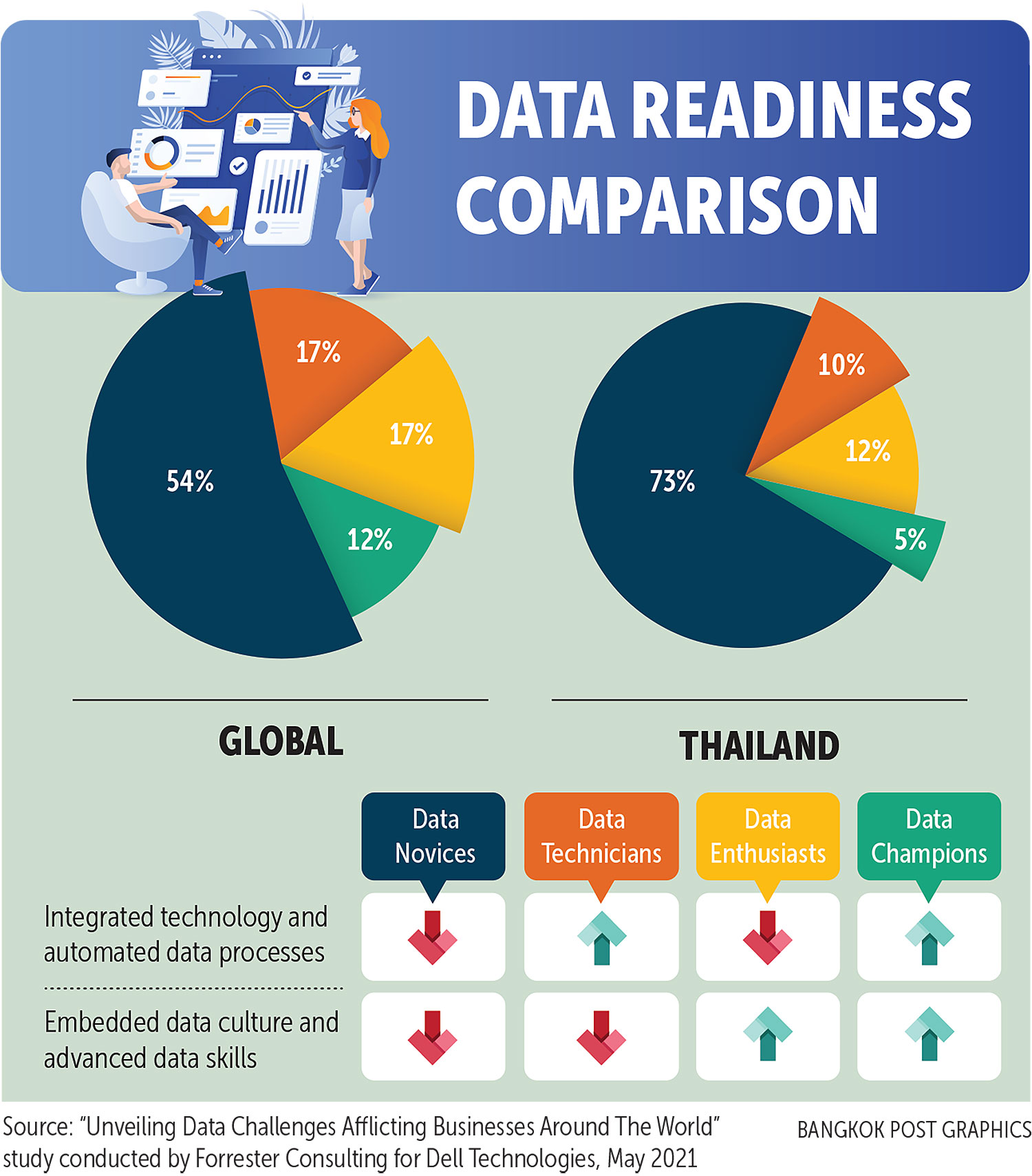Thai businesses need to build data culture and literacy, invest in data science and embrace multi-cloud adoption to drive their data monetisation ability and competitiveness, says technology giant Dell Technologies.

"Most businesses in Thailand are struggling with the proliferation of data," said Noppadol Punyatipat, managing director of Dell Technologies Thailand.
"Instead of offering a competitive advantage, data has become a burden due to an array of barriers, such as a data skills gap, data silos, manual processes, business silos, and data privacy and security weaknesses," he said.
Mr Noppadol was speaking at an online press conference about "Data Paradox" research conducted by Forrester Consulting on behalf of Dell.
The study surveyed more than 4,000 company decision-makers from 45 countries, including Thailand.
It also highlighted the 2020 Digital Transformation Index, which assesses the digital maturity of businesses around the world. The index indicates "data overload and unable to extract insights from data" was the third highest global ranking barrier to transformation, up from 11th in 2016.
The research shows 67% of respondents in Thailand, versus 66% globally, indicate their business is data-driven and data is "the lifeblood of their organisations".
However only 12% in Thailand, versus 21% globally, say they treat data as capital and prioritise its use across the business.
In terms of data readiness level, the proportion of businesses in Thailand treated as data novices -- those that are overwhelmed by data volume and variety and need the right skills, culture and tech infrastructure -- is 73%.
Some 10% are regarded as data technicians or those who can turn data into insight by using multi-cloud tools and model and process data, but still need to optimise for the right skills and culture mix.
Some 12% are called data enthusiasts -- those who invest in data science skills and culture but still need to optimise for the right infrastructure.
Only 5% in Thailand are called data champions, who can turn data into insights, invest in data science skills and culture, and are data-savvy.
Regarding data skills gaps, 63% of the respondents in Thailand say they were held back by insufficient in-house data science skills. Some 55% said they were held back by insufficient in-house technical skills.
Only 10% indicate they are actively recruiting digital scientists or software developers.
The study shows 65% intend to use machine learning to detect anomaly data and 52% said they are looking for a data-as-a-service model. Some 44% said they are planning to look deeper into how they process and use data in the next 1-3 years.
According to Mr Noppadol, 44% of respondents said the amount of data they collect, store and analyse has surged following the pandemic, leaving data teams frustrated.
"Businesses need to count on end-to-end data services that can overcome data silos and make meaningful discovery. They need to have real-time data to predict the future's outcome," he added.
Some 67% of respondents said they have a data monetisation plan for business success.
According to Dell, IT spending in Thailand is projected to rise 42% to US$43 million over the next three years.
The outlay was only $17.6 million three years ago and it has surged 72% to $30.3 million since then.
